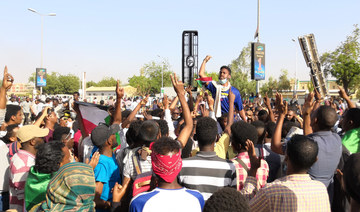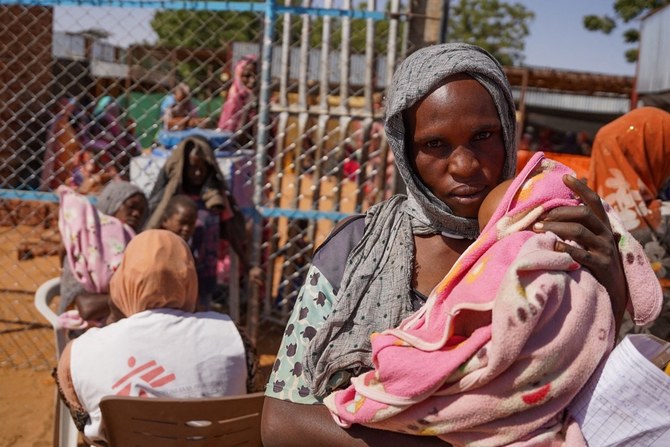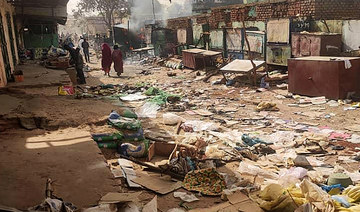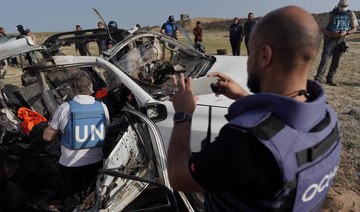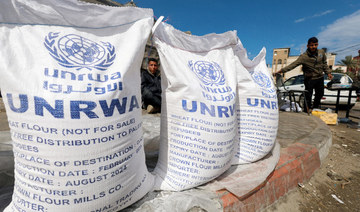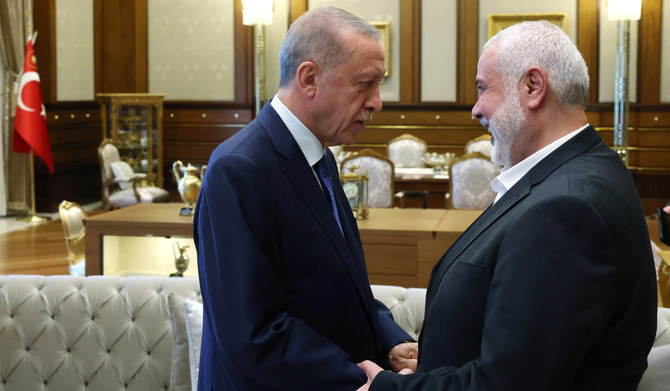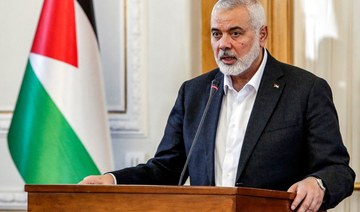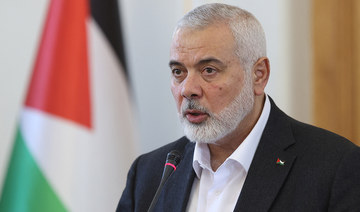KHARTOUM: Sudan’s military has removed Omar Al-Bashir from power after 30 years and declared a state of emergency.
The move brings to an end the divisive and autocratic reign of one of Africa and the Arab world’s longest serving leaders.
It follows months of escalating protests against his rule that have been met with a brutal response by the security forces. Dozens of people have been killed.
*********
READ MORE:
OPINION: Is this a new Sudan or a new coup?
TIMELINE: Mounting protests in Sudan
Omar Al-Bashir: A tumultuous 30-year rule comes to an end
Viral ‘Nubian queen’ rally leader says women key to Sudan protests
*********
But while many celebrated the coup, protests leaders expressed their anger at the military intervention and called for the demonstrations to continue.
In a televised address, Ahmed Awad Ibn Auf, the first vice president and defense minister of Sudan, announced the suspension of the Sudanese constitution and creation of a transitional military council, which will lead the country for two years. Elections would be held after the transition period, Auf added.
“We, the transitional government, bear the responsibility to protect our citizens,” he said “We hope our population will bear the same responsibility.”
Auf, who was sworn in as the head of the council late on Thursday, blamed the 75-year-old leader for his own downfall.
-------
KEY DEVELOPMENTS
*Defense minister announces toppling of the regime and a state of emergncy
*Omar Al-Bashir, who ruled for 30 years, detained at a ‘secure place’
*Transitional military council to run the country for two years, followed by elections
*Political prisoners released and ceasefire declared across country
*Tens of thousands celebrate but protest leaders unhappy, vow to continue demonstrations
-------
“The regime continued to make false promises in response to the demands of the people,” Auf said.
Wearing military uniform and talking calmly to the camera for almost 10 minutes, Auf offered to reassure the Sudanese people, saying the judicial system will remain the same. He called on all armed groups to join the government and protect the people.
A massive crowd of jubilant Sudanese people thronged squares and streets of central Khartoum ahead of the announcement.
But the protestors’ Alliance for Freedom and Change said the regime had "conducted a military coup by bringing back the same faces and the same institutions which our people rose against.”
Watch crowds of Sudanese people celebrate the collapse of the Bashir regime #SudanProtest https://t.co/hLpCrc7Ldn pic.twitter.com/FOjgwsrePT
— Arab News (@arabnews) April 11, 2019
It urged people “to continue their sit-in in front of army headquarters and across all regions and in the streets.”
Alaa Salah, who became an icon of the protest movement after a video of her leading demonstrators' chants outside army headquarters went viral, said: “The people do not want a transitional military council.”
“Change will not happen with Bashir's entire regime hoodwinking Sudanese civilians through a military coup,” she tweeted. “We want a civilian council to head the transition.”
The people do not want a transitional military council. Change will not happen with Bashir’s entire regime hoodwinking Sudanese civilians through a military coup. We want a civilian council to head the transition. #Sudan
— Alaa Salah (@iAlaaSalah) April 11, 2019
The son of the head of Sudan’s main opposition party said Al-Bashir was under house arrest along with a “number of Muslim Brotherhood leaders,” Al-Hadath TV reported.
Al-Bashir was at the presidential residence under “heavy guard,” Reuters reported, while it was announced the transitional council would be headed by Auf.
Sudan's army warned it would enforce a night-time curfew, state media reported, as protesters vowed to continue demonstrating against a military council set up after president Omar Al-Bashir was toppled.
The curfew runs "from 10:00 pm to 4:00 am, and all must adhere to it for their own safety," the army said in a statement carried by the official SUNA news agency, adding that it was "doing its duty to keep them and their properties secure".
International reaction to the situation was cautious on Thursday.
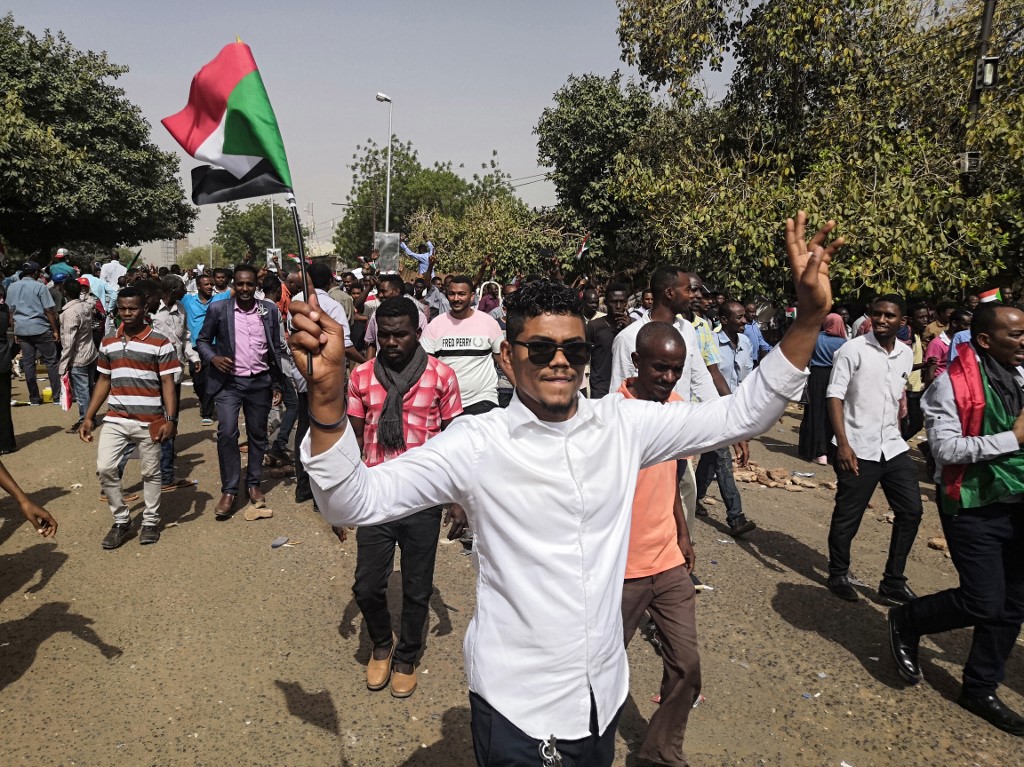
Sudanese protesters march towards the military headquarters during an anti-regime rally in the capital Khartoum on April 11, 2019. (AFP)
The US said it supported a peaceful and democratic Sudan and believes the Sudanese people should be allowed a peaceful transition sooner than two years from now.
"The Sudanese people should determine who leads them in their future," State Department spokesman Robert Palladino said. "The Sudanese people have been clear that they have been demanding a civilian-led transition."
British Foreign Secretary Jeremy Hunt said two years of potential military rule in Sudan “is not the answer" for “real change” in the country.
Hunt tweeted that Sudan needs "a swift move to an inclusive, representative, civilian leadership" and an end to violence.
#Sudan’s brave people have called for change, but it must be real change. A military council ruling for 2 years is not the answer. We need to see a swift move to an inclusive, representative, civilian leadership. And we need to ensure there’s no more violence.
: @lana_hago pic.twitter.com/UoIdFbTfOb
— Jeremy Hunt (@Jeremy_Hunt) April 11, 2019
The US and five European countries — France, UK, Germany, Belgium and Poland — calling for a UN Security Council meeting on Sudan, which will be a closed-door session to be held on Friday. The European Union has called for peaceful and civilian transition.
Al-Bashir has an International Criminal Court arrest warrant against him for the death of an estimated 300,000 people in the Darfur region.
The country’s national intelligence and security service also announced the release of all political prisoners numbering about 5,000, the country’s state news agency reported.
One of those released was Mohammed Naji Elasam, a spokesman for the Sudanese Professionals Association (SPA), the main organizer of protests being held across Sudan since December, witnesses said. Elasam had been detained for more than three months.
Huge crowds of jubilant Sudanese celebrate ouster of President Omar Al-Bashir. Read more: https://t.co/MqQjPitDe4 pic.twitter.com/c5eqntwnt5
— Arab News (@arabnews) April 11, 2019
Meanwhile, Sudanese protesters stormed a building of the powerful intelligence services in the eastern cities of Port Sudan and Kassala after the officers refused to release the detainees there, witnesses said.
“Protesters stormed the building and looted all the equipment that was there,” a witness from Kasala told AFP by telephone.
The military earlier deployed troops around the defence ministry and on major roads and bridges in the capital.
Al-Arabiya TV also reported that soldiers have raided the headquarters of Al-Bashir’s Islamic Movement in Khartoum.
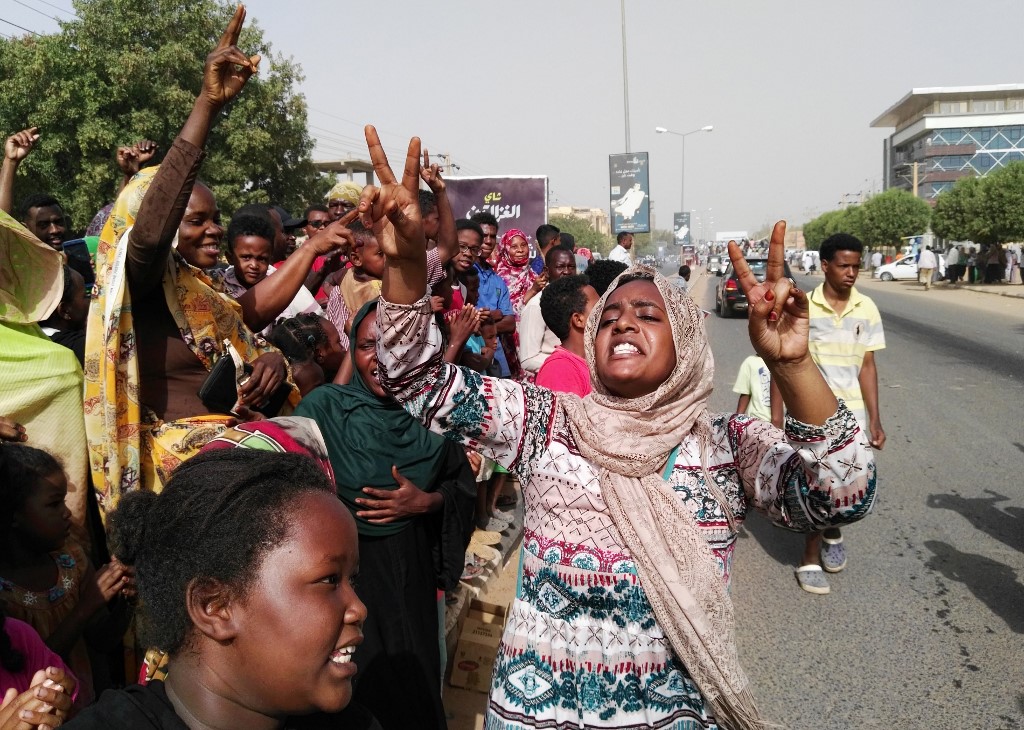
Jubilant Sudanese women chant slogans in the Khartoum on Thursday, April 11, 2019. (AFP)
Airports in Khartoum and Port Sudan were closed, which prompted Saudi carriers Saudia and Flynas to announce on Twitter that they had suspended all flights to and from Sudan.
Protesters gathered in front of the military headquarters as military vehicles were deployed on key roads and bridges in Khartoum. They were reportedly shouting “It has fallen, we won,” Reuters said.
The protests, which erupted in December, have become the biggest challenge yet to Bashir’s three decades of iron-fisted rule.
Crowds of demonstrators have spent five nights defiantly camped outside the sprawling headquarters complex, which also houses Bashir’s official residence and the defense ministry.
There has been an often festive mood at the sit-in with protesters singing dancing to the tunes of revolutionary songs. State television and radio played patriotic music, reminding older Sudanese of how military takeovers unfolded during previous episodes of civil unrest.
(With Reuters and AFP)












